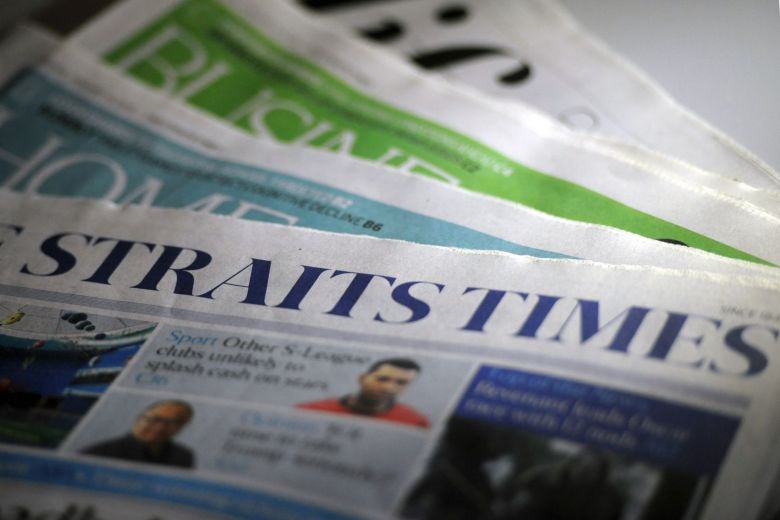Berlin Museum returns artefacts to indigenous people of Alaska
Sign up now: Get ST's newsletters delivered to your inbox

BERLIN (NYTIMES) - The foundation overseeing state museums in Berlin returned nine artefacts to indigenous communities in Alaska on Wednesday (May 16) after it determined that they had been taken from a burial site in the 1880s.
"The objects were taken from graves without permission of the native people, and thus unlawfully," said Hermann Parzinger, the president of the Prussian Cultural Heritage Foundation, which oversees Berlin's publicly funded museums.
"Therefore," he added, "they don't belong in our museums."
The items, which included several masks, a wooden idol and a baby basket, had been in the collection of Berlin's Ethnologisches Museum (Ethnological Museum), although they were never exhibited. Between 1882 and 1884, they were taken by Johan Adrian Jacobsen, a Norwegian adventurer and amateur ethnographer acting on behalf of the museum.
In front of members of the media, Parzinger handed a fragment of a large wooden mask to John F.C. Johnson, a representative of the Alaskan Chugach people. Both men, wearing white cotton gloves, held the mask between them for photographers.
The return of the items comes at a time when European museums are being called on to put more effort into provenance research and to return objects acquired in ways that would now be unlawful or unethical.
During a visit to Burkina Faso last year, the president of France, Emmanuel Macron, vowed to make the return of African art a "top priority."
"African heritage can't just be in European private collections and museums," he said at the time.
In Germany, where most provenance research has focused on art looted during the Nazi years of the 1930s and '40s, the subject of provenance research into objects taken during earlier times has been the matter of some controversy.
Although Germany's empire was much smaller than France's or Britain's, it had several African colonies and acquired many objects for its museums from these territories, as well as from other parts of the world.
Bénédicte Savoy, an art historian and outspoken critic of current curatorial practices in Germany, last year (2017) quit the advisory board of the Humboldt Forum, a huge new museum under construction in Berlin, in part to protest the lack of research into the provenance of its collection.
Savoy, who both heads the modern art history department at Berlin's Technical University and holds a professorship at the Collège de France in Paris, has since been hired to advise Macron on the repatriation of African art.
When it opens next year, the Humboldt Forum will incorporate the collection of the Ethnographic Museum along with the Asian art collections of other Berlin museums.
Monika Grütters, Germany's culture minister, announced on Tuesday that the new director of the Humboldt Forum will be Hartmut Dorgerloh, who currently leads the organisation in charge of historic palaces and gardens in Berlin and the surrounding area.
Although the Humboldt Forum will have to grapple with questions of restitution and postcolonial sensitivities, these are not major features of Dorgerloh's current position, which he has held since 2002.
Johnson, the representative of the Chugach people, said at a news conference on Wednesday that he had first travelled to Berlin in 2015 in search of the artefacts, which he said he had known about for a long time.
"Our people are traders," Johnson said, but "they would never trade burial objects."
Once the objects get back to Alaska, they will be returned to the Chugach community, he added, and be displayed in community centres or local museums.


